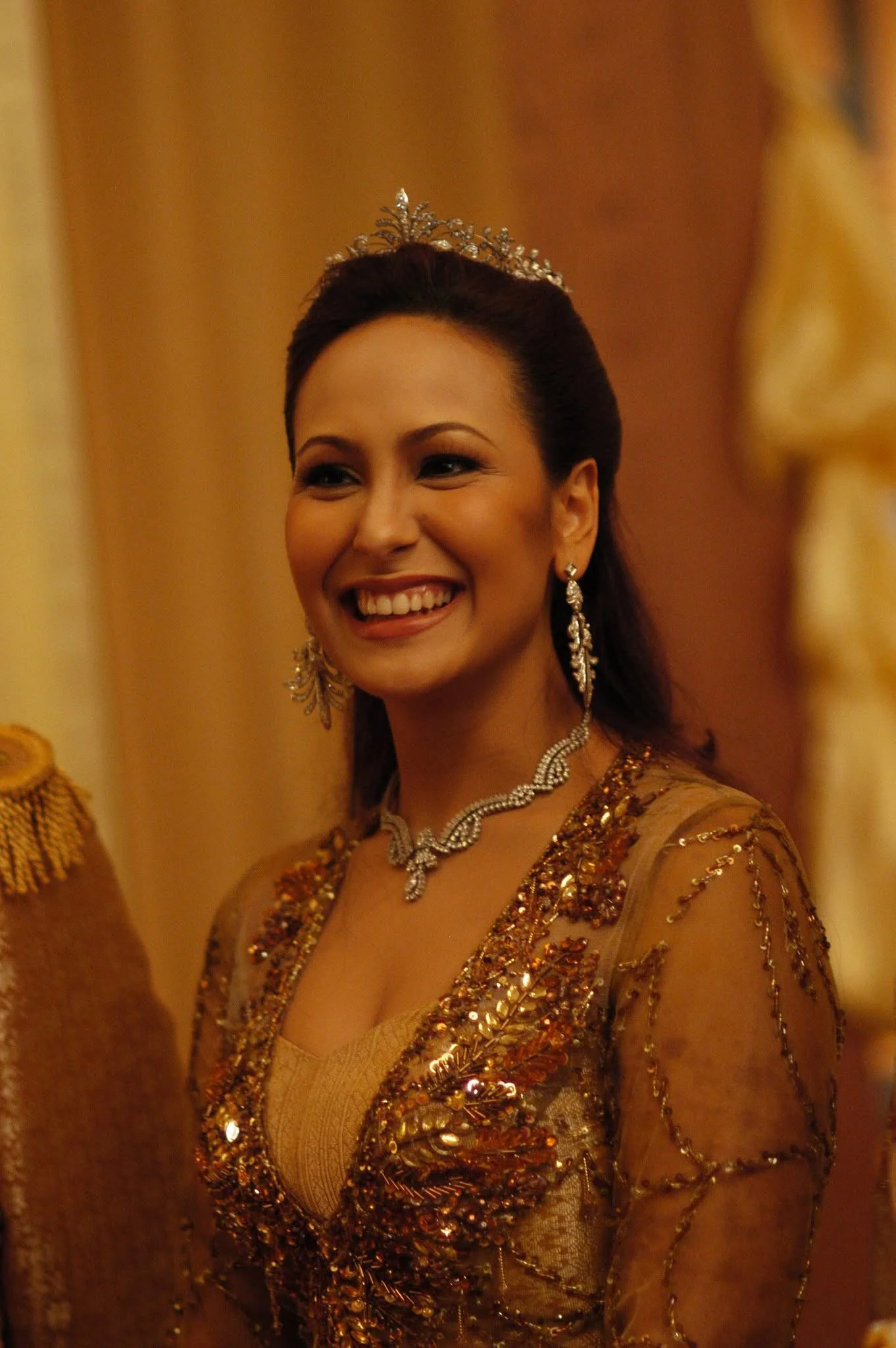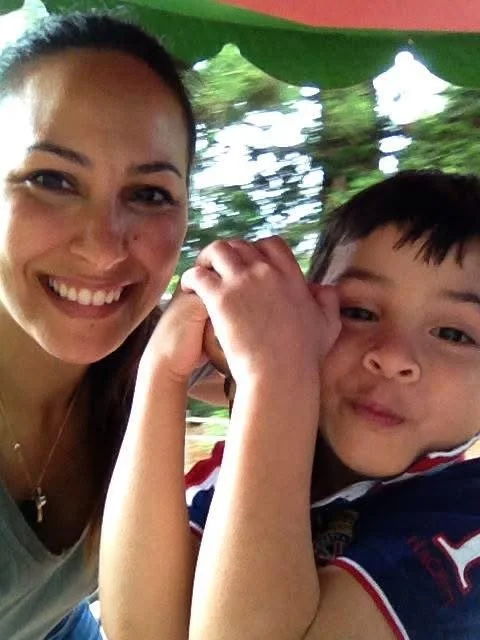| 1| We Treat Mothers Like They Don’t Exist — Then Wonder Why the World Feels Broken
*
“I didn’t leave for freedom. I left to survive. But somewhere between fear and the runway, carrying my child and a suitcase of memories, I found something greater than escape —
I found the woman I was never allowed to become.”
The night I fled royalty to save myself and my son, I realised motherhood isn't invisible—it's foundational. How we care for mothers defines humanity.
The 24-Hour Choice That Changed Everything
Twelve years ago I was married to a prince, grandson to a king, raising my own prince—and facing a decision that would change everything.
I had 24 hours to choose: stay and vanish behind royal protocol and abuse, or risk everything to save my son and reclaim our future.
I chose FREEDOM .
And so I did what every good mother would do: I had a panic attack, picked myself up from the shower floor, then started packing.
Escape Is a Thousand Quiet Revolutions
Escape isn’t a single act, it’s a thousand quiet revolutions. I was now a “royal runaway.” But behind the scenes, it was messier—more human, more holy. A mother clutching her son, trusting in instinct over inheritance, praying for safety with every hurried breath.
I packed quietly, like I was defusing a bomb with sentimental keepsakes. No one tells you how impossible it is to compress your identity and life into a suitcase—especially when you're trying to fit in toys, a lifetime of photos, and whatever grace you have left.
I skipped the designer stilettos and grabbed the memories. I quickly sorted through possessions that held moments in time: photographs, letters, the keepsake box. The things you would grab if your house was on fire—and mine was burning, like a bushfire in raging winds, faster than my logical mind could comprehend. I couldn’t even tell a soul that I was leaving—there was no time for goodbyes, and the consequences of being caught far outweighed the need for farewells. I had people following and reporting my every move, but I had a small window to get out unnoticed before dawn.
To escape, I played hide and seek with my son—the most harrowing plan, hiding my son in a suitcase. He thought it was fun. I thought it was the only way we’d get through undetected.
We boarded a flight from a small airport where I knew digital processing was a distant thought and old-school stamping was still in session. A blessing, truly—thank you, spirit guides! When that stamp hit our passports, it wasn’t just ink. It was resurrection.
When we landed home in Perth, Australia, I finally exhaled, and a feeling of both relief and grief flowed through me. I wanted to scream at the top of my lungs “F-R-E-E-DOM!” like Mel Gibson in Braveheart, but decided on a silent fist bump holding back tears and a high five with my son instead. There’s something profoundly healing about that first gust of eucalyptus-scented air and the sound of nobody telling you who to be. Highly underrated.
“ A Mothers Love is the fuel that empowers the Impossible”
.
True Escape Is Spiritual, Not Just Physical
But here is where the story changes.
Because true escape is never just physical—it’s cellular, spiritual, ancestral.
A women is most connected to the light when she chooses herself, a woman who decides she deserves better — when she makes the decision to leap into the unknown. All the universe conspires to help her. I know in my heart that I was being guided by something I couldn’t explain at the time.
My whole world was collapsing, and yet there was relief. A quiet knowing and stillness within that told me: this was the greatest gift I could have given myself. Anything was better than what I left behind. Staying would have destroyed me. I probably wouldn’t be her now.
When I tell my story, people often comment on how “brave” I was, that they could never do what I did. But when you’re in survival mode, something inside you kicks in — a top gear that you didn’t know existed. Just like when a woman becomes a mother overnight… she taps into the strength and holy energy that is only revealed during birth, a pain so unimaginable, required to bring great light and life into this world. The transformation into motherhood is the most sacred part of creation.
I wept—not for what I’d lost, but for what I was finally free to feel.
In losing everything, I found the pieces of my becoming.
The Rotten Weight We Carry: A Classroom Parable
There’s a story I once heard about a teacher and her lessons about holding on to what no longer serves us.
A teacher asked each student to bring in a handful of tomatoes, writing on each the names of people they hated or couldn’t forgive. She told them to carry those tomatoes everywhere—in their schoolbags, day and night, for two weeks.
By the end, the tomatoes had rotted. The stench was unbearable. The children begged to throw them away, ashamed and disgusted with the filth they now carried.
The lesson was clear:
When we hold onto pain, resentment, unspoken grief, it becomes a poison we carry everywhere.
It seeps into our bodies, our dreams, the very fabric of who we are.
What science now confirms is what our grandmothers knew by heart—unhealed wounds embed themselves into our DNA, passed like ghostly fingerprints through generations.
We become sick, not just in body, but in spirit.
Motherhood doesn’t shield us from this sickness; sometimes, it exposes it.
As I rebuilt myself—stripped of status, alone with my son—I realised:
The weight of what we carry, if left unseen, can destroy us.
But if we turn to face it—if we dare to name it, acknowledge it, feel though it, mourn it, release it—healing can begin.
Motherhood: The Foundation of Humanity
Motherhood, I learnt, is not a footnote in the story of humanity. It is the opening chapter, the foundation, the pulse, and heart of civilisation itself. Yet, too often, we treat mothers as invisible.
We celebrate birth, but abandon the mother to silence.
We praise resilience, but ignore the cost.
In Australia, up to one in three mothers endure postnatal depletion. One in five faces anxiety or depression. Suicide is a leading cause of maternal death within a year of giving birth.
Still, care for mothers is an afterthought—a privilege for some, a battle for most.
This isn’t just my story. It’s the silent epidemic woven through every community, every culture, every family tree. It is what happens when we ask women to birth the future, then leave them to suffer in silence—unseen, unspoken, unaided.
We mother the Saints, Prophets, Presidents, CEO’s of this world— the Kings and Queens of history, and the quiet sons and daughters whose names may never be printed but whose lives are no less significant. And yet so often, our becoming is ignored.
Motherhood didn’t just ask me to give life. It asked me to reconstruct my own, quietly…
It stripped me down. And somehow, through the sleepless nights, the healing therapies, and the endless bowls of uneaten toddler food, it also revealed who I really was.
This is what no one teaches us — that becoming a mother means becoming someone entirely new. A new body. A new mind. A new timeline. And if we don’t make space for that, we’re not just failing mothers. We’re failing humanity.
Motherhood is not a detour. It’s a rebirth. A sacred time that deserves reverence.
The Call for Healing and Change
If you are reading this and carrying your own burdens—grief, exhaustion, invisible wounds—I want you to know:
You are not weak. You are becoming.
To those in power—policy makers, CEOs, educators, healers—I say this…
When you raise the standard of care for mothers, you elevate the whole of society.
When you listen to the stories behind closed doors, you heal generations yet unborn.
My mission—born not from triumph, but from resilience and truth—is to ensure that no other woman must walk her rebirth alone.
The details of my escape—the midnight decisions, the miles run in fear—those stories are not all for print. Some truths are sacred, and some are still unfolding. I will share them, uncensored, on my podcast, for those ready to witness the full fire.
But here, let this be a beginning.
A reckoning.
A blessing.
A rallying cry.
Because when we finally see our mothers,
We heal the world.
The Final Question
If we knew that the wellbeing of every generation depended on how we care for mothers today, what would we do differently…right now?
MY LITTLE HERO
Why I Built This Space for You (and Us)
The Change We Owe Mothers
If you’ve made it this far, welcome. This is not just my beginning.
It’s the beginning of a space where you can feel seen, heard, and held.
The truth is, our systems were never designed to support mothers after birth. The postpartum period is treated as a personal recovery — not a public health priority. We discharge women from hospitals in 24 hours with no follow-up care plan, no emotional scaffolding, and no recognition of what they’ve just survived.
But we can do better.
We need policies that acknowledge postpartum as a critical window for care — one that integrates mental health screenings, nutritional support, hormonal education, and rest. We need to build bridges between medical systems and the sacred: places where mothers are seen not just as patients, but as vessels in transformation.
Postnatal depletion isn’t just a private pain. It’s a collective blindspot.
And here’s what’s even more painful: we once knew how to do this. The ancients understood what modern medicine forgot.
For thousands of years, cultures around the world practiced sacred postpartum care. From the Javanese 30-day healing ritual to Ayurvedic confinement, from the Mexican cuarentena to Chinese zuò yuè zi, mothers were nourished, massaged, held, and honored. They were not left alone. They were not expected to bounce back. They were expected to rest. And their rest was sacred.
We’ve lost that reverence.
Now, in sterile rooms and economic models, the most vital transformation in a woman’s life is rushed, minimised, and ignored.
But the blueprint already exists. The wisdom is there. It’s time we remember it — and reintegrate it into modern policy, care systems, and cultural awareness. And it’s time we built a new model — one where care is continuous, where healing is held, and where no woman feels she has to rebuild her life in isolation.
This blog isn’t about me. It’s for the woman still packing her bags in the dark. The one holding a baby and her breath. The one rebuilding her soul while the world moves on. And it’s for the partners, the fathers, and the people who want to understand — not just to witness the transformation, but to be part of the healing.
Because this isn’t just about women. It’s about humanity. When we support mothers, we elevate families. And when fathers, brothers, policymakers, and communities rise with us, change becomes not only possible — it becomes inevitable.
Welcome to The Journal. Welcome to Sofia Lane.
I never wanted to be the one who had to survive to speak. But now that I’ve found my voice — I speak for the ones still searching for theirs. It’s for the woman still packing her bags in the dark. The one holding a baby and holding back tears. The one rebuilding her soul in the shadows while the world moves on. So that no mother gets left behind.


